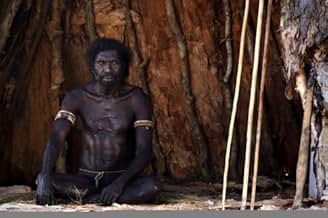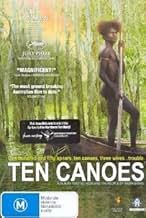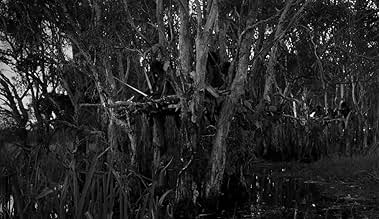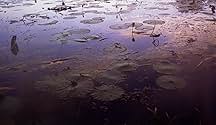In Australia's Northern Territory, a man tells us a story of his people and his land. It's about an older man, Minygululu, who has three wives and realizes that his younger brother Dayindi m... Read allIn Australia's Northern Territory, a man tells us a story of his people and his land. It's about an older man, Minygululu, who has three wives and realizes that his younger brother Dayindi may try to steal away the youngest wife.In Australia's Northern Territory, a man tells us a story of his people and his land. It's about an older man, Minygululu, who has three wives and realizes that his younger brother Dayindi may try to steal away the youngest wife.
- Awards
- 17 wins & 9 nominations total
- Dayindi
- (as Jamie Dayindi Gulpilil Dalaithngu)
- …
- The Storyteller
- (as David Gulpilil Ridjimiraril Dalaithngu)
- Directors
- Writer
- All cast & crew
- Production, box office & more at IMDbPro
Storyline
Did you know
- TriviaThe canoes in the film were made according to original tribal methods, using directions from tribal elders who had not made them for some fifty years.
- Quotes
The group: [all walking in a line]
Canoeist: Everyone stop!
[all stop and turn]
The Storyteller: That one is Djigirr. Djigirr talk too much, but maybe he heard something.
Canoeist: I refuse to walk at the end. Someone ahead keeps farting.
The group: [laughter] Not me. Not me.
Canoeist: It's you again. You're always so silent. Silent but deadly. Admit it.
Canoeist: Alright, it's me.
Canoeist: You're rotten inside.
Canoeist: I'm rotten inside.
Canoeist: You get to the end of line.
- Alternate versionsThere are currently three versions of the film:
- (1) the Yolngu languages dialogue version with English subtitles and narration storytelling spoken in English by David Gulpilil;
- (2) the Yolngu languages dialogue version with English subtitles and narration storytelling spoken in Mandalpingu by David Gulpilil;
- (3) the Yolngu language only version without any subtitles
- ConnectionsEdited into Terror Nullius (2018)
Rolf de Heer, a maker of small, quirky and interesting films ("Bad Boy Bubby", "The Old Man Who Read Love Stories", "The Tracker"), probably doesn't subscribe to either notion. In this exquisitely photographed tale from the mythical past he lets the aboriginals of the Arafura wetlands, Arnhem Land, tell their own story. Apart from David Gulpilil, who provides a gentle, teasing voice-over, and his son Jamie, all the parts are played by non-professional actors from the district. Apart from the voice-over, all the dialogue is in the local aboriginal language (don't worry, there are sub-titles).
While on a goose egg hunting trip, Older Brother , who has noticed his younger brother's interest in one of his wives, tells Younger Brother a story from a much earlier time, of another younger brother who yearned after his older brother's wife. Without giving the story away, the moral is "be careful about what you wish for, you might get it", but much happens in between. It becomes evident that these "savages", as well as possessing a robust sense of humor, have a legal system that minimizes the damage done by crimes. It seems that neighboring tribes, whose language our tribe scarcely understands, will play by the same rules. Once honour is satisfied, the matter is at an end. The story gives us an insight as to how aboriginal society remained stable for so long prior to contact with Europeans.
It is hard to comment on the acting, other than to say the characters seem completely authentic. The tribe's sorcerer, for instance, likes to choose a bone to wear in his nose to suit his mood or the occasion, just as your local GP might like to select a bow tie before opening his surgery. But I have to mention Crusoe Kusddal as Ridjimiraril, the older brother in the myth. His language means little to us, but his expression everything.
The scenes on the goose-hunt, which book-end the main story, are in black and white, a tribute to earlier photographers in Arnhem Land, but most of the film is in colour, which does full justice to the landscape. This is no Garden of Eden the necessity to build tree platforms while camping in the swamp is evidence of that (though we see no actual crocodiles). Yet the aborigines manage to live within the environment without despoiling it or each other. Theirs is a patriarchal society but women are protected by the rules as well as by their menfolk. The movie is a fascinating glimpse into the culture, told in a disarmingly humorous fashion, by the people themselves. One should not be too misty-eyed about this the cast probably watch "The Simpsons" via satellite at home but they have given us both a droll tale and some food for thought.
- How long is Ten Canoes?Powered by Alexa
Details
- Release date
- Country of origin
- Official site
- Languages
- Also known as
- Muoi Chiêc Thuyên Môc
- Filming locations
- Production companies
- See more company credits at IMDbPro
Box office
- Budget
- A$2,200,000 (estimated)
- Gross US & Canada
- $283,654
- Opening weekend US & Canada
- $14,076
- Jun 3, 2007
- Gross worldwide
- $3,360,455
- Runtime1 hour 30 minutes
- Color
- Sound mix
- Aspect ratio
- 2.35 : 1
Contribute to this page








